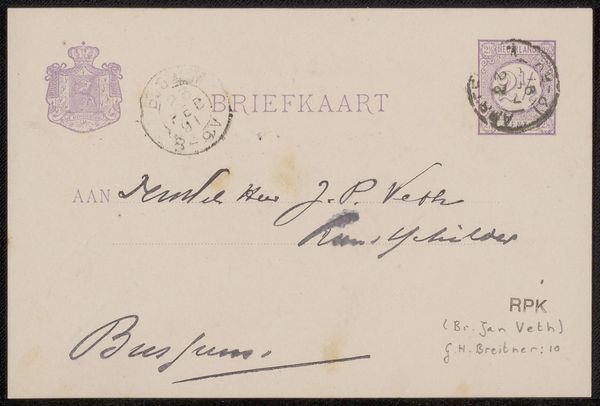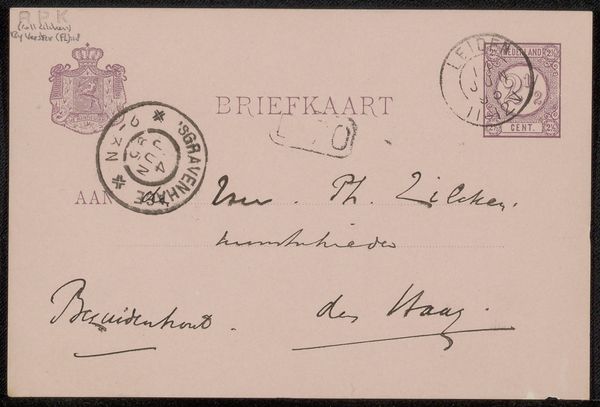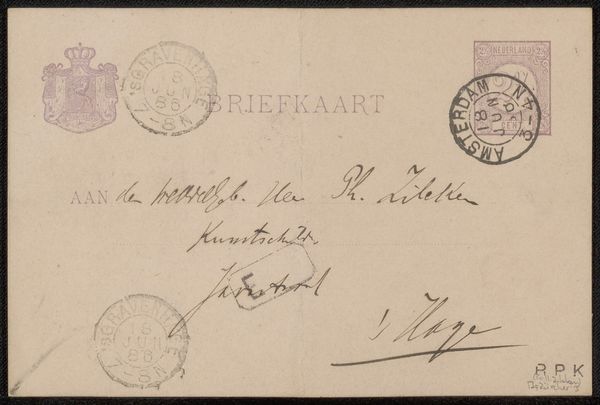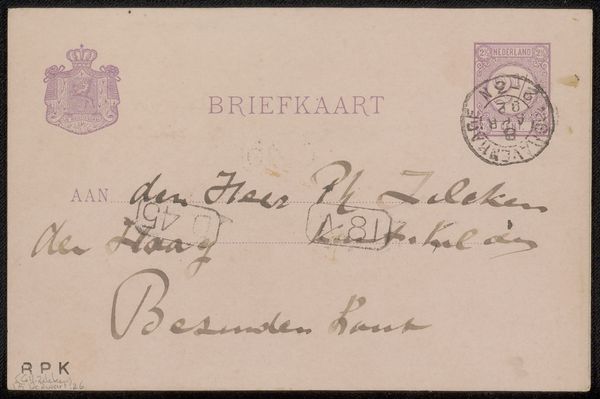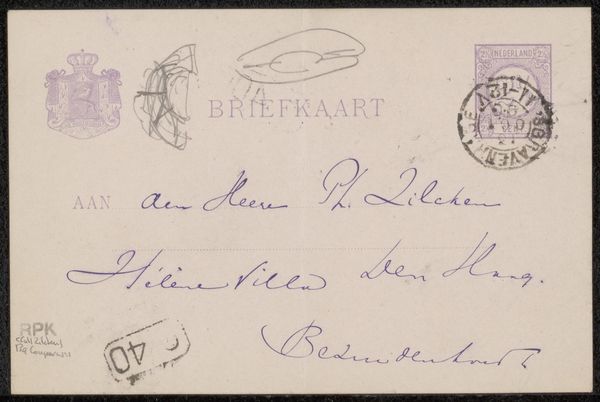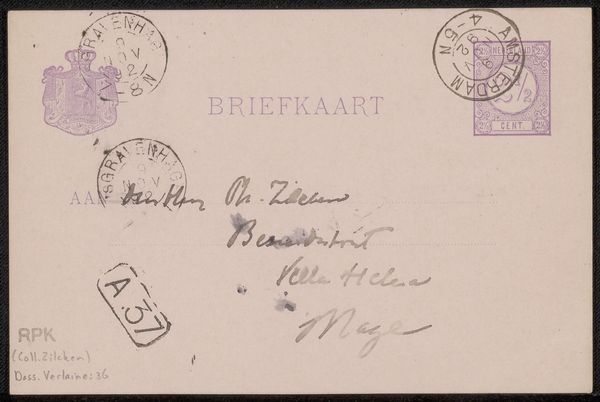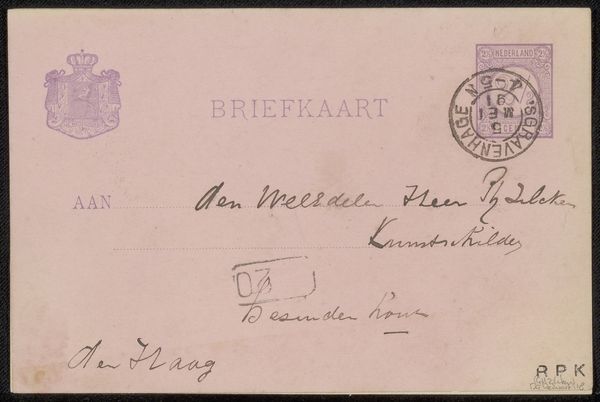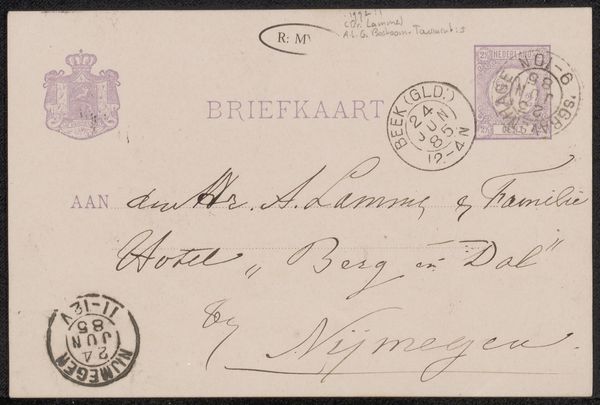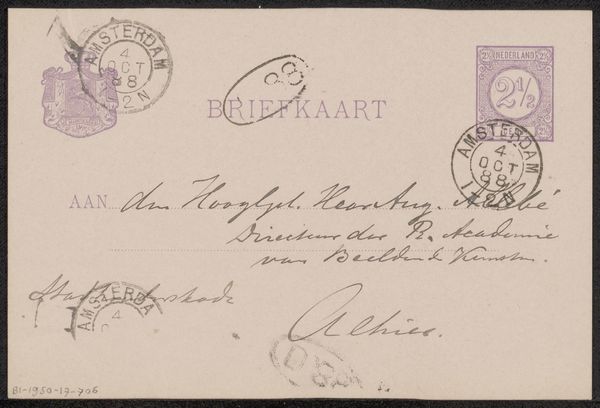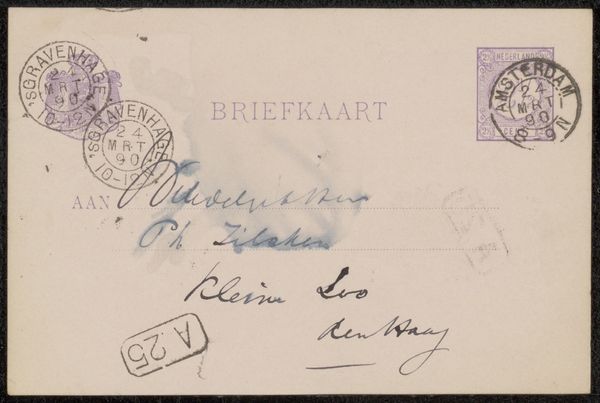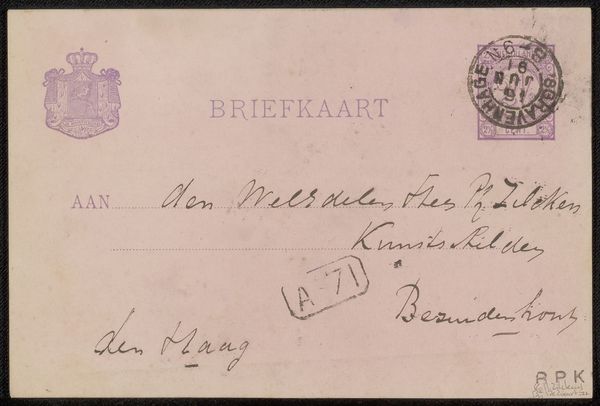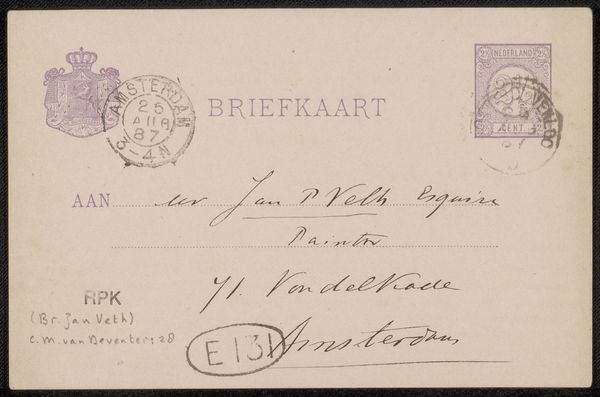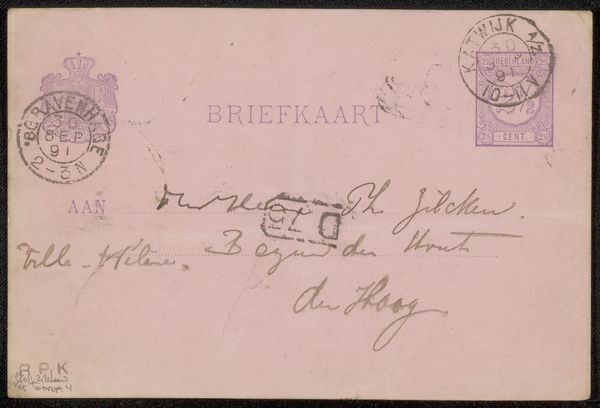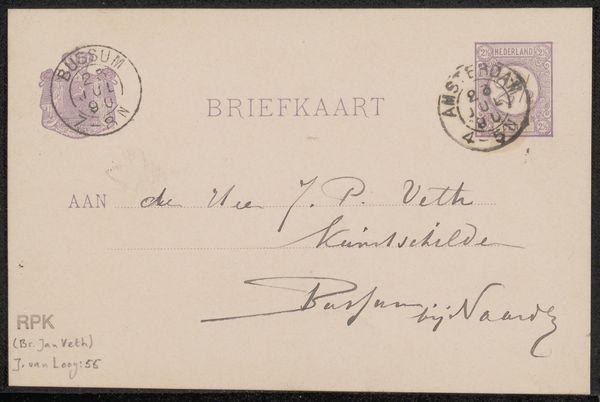
#
hand-lettering
#
pen sketch
#
hand drawn type
#
hand lettering
#
personal sketchbook
#
ink drawing experimentation
#
pen-ink sketch
#
pen work
#
sketchbook drawing
#
sketchbook art
Copyright: Rijks Museum: Open Domain
Editor: So, we're looking at a postcard: "Briefkaart aan Jan Veth," made before 1897 by George Hendrik Breitner. It seems like a pretty ordinary piece of correspondence, almost ghostly in its simplicity. What jumps out at you? Curator: Oh, it’s absolutely charming, isn't it? It whispers of a slower pace of life, where a handwritten note was a valued form of connection. But look closer, it's more than just a mundane message. Imagine Breitner, known for capturing the bustling streets of Amsterdam, taking a quiet moment to pen this. The stamp, the delicate handwriting...it's like a tiny time capsule. Do you think it tells us anything about Breitner’s world, away from those bustling streets? Editor: Hmm, perhaps a glimpse of his personal life? I see it was addressed to Jan Veth. Was he a fellow artist? Curator: Indeed! Veth was a prominent artist, critic, and art historian. Perhaps Breitner sought his advice, or maybe they were just close friends. The very act of sending a *brief kaart*, a little card, suggests an intimacy. The economy of words too...almost as if the connection transcends needing lots of them. Doesn't the modesty in presentation hint at a confidence, an understanding, between artist peers? Editor: That's a lovely thought! It completely changes my initial interpretation. What began as something mundane now feels imbued with friendship and mutual respect. Curator: Exactly! It's those hidden narratives that truly bring art to life, isn't it? Each element offers clues. These mundane objects, often overlooked, unlock surprising insights into art and human interaction.
Comments
No comments
Be the first to comment and join the conversation on the ultimate creative platform.
